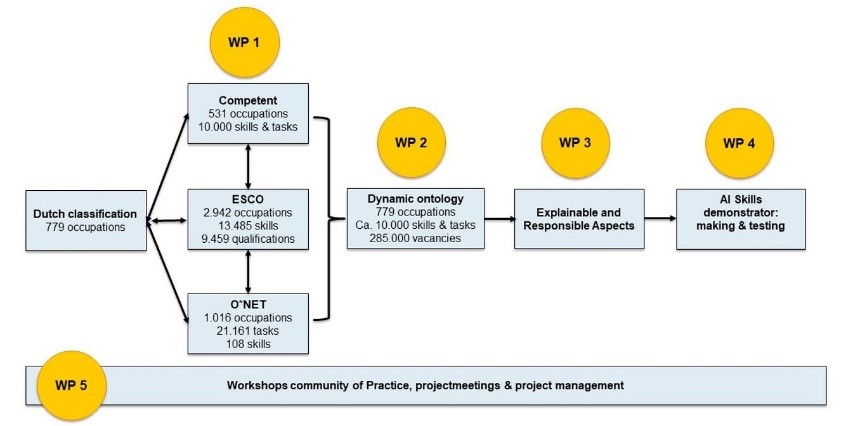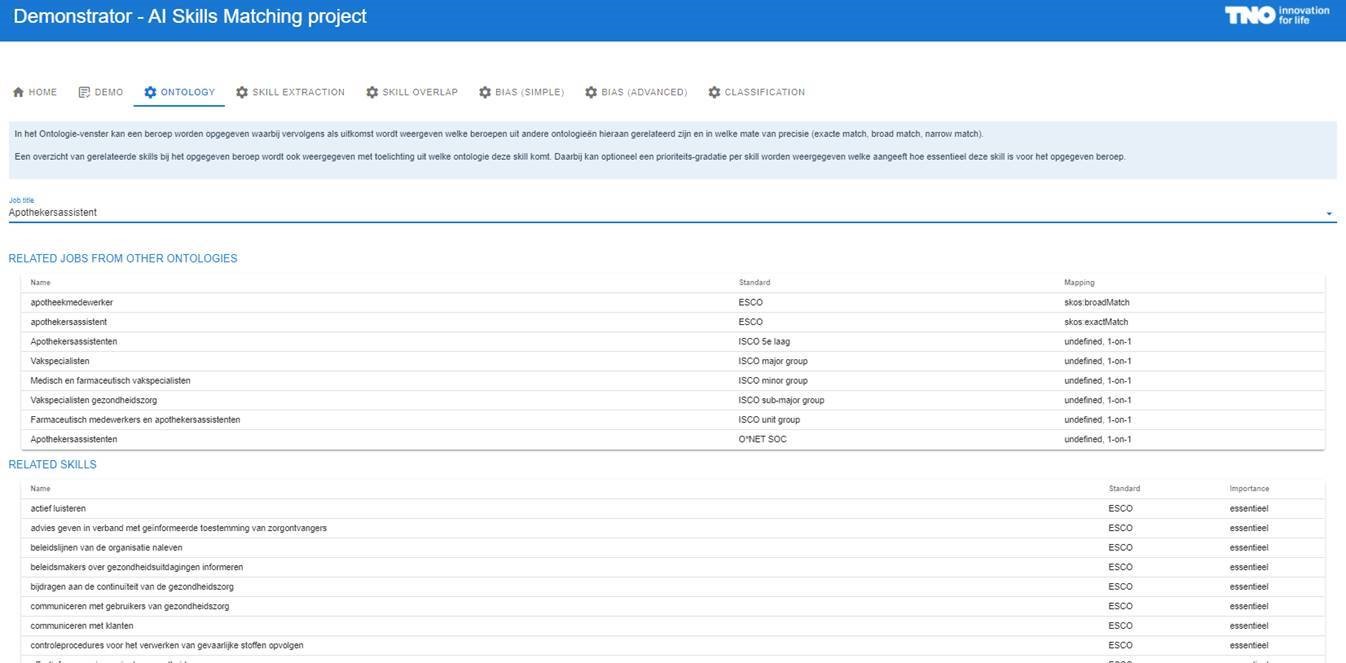AI Skills Matching – a use-case project of Appl.AI
Description
Improve the matching between vacancies from companies and job seekers by developing an AI demonstrator that provides vacancy scores and recommendations of skills changes.
Problem Context
Currently, there is still a significant mismatch between supply-and-demand in the labor market. It is recognized that matching based on skills helps to reduce the mismatches. There are various international skills classifications, but these do not provide insight into changes in the Dutch labor market, while this is important in the changing labor environment. During (and after) this current COVID-19 period, the need for a dynamic (and bias-free) skills approach has become even more urgent, as the number of job seekers will grow and the matches with adequate jobs will be more challenging.

Solution
The ultimate ambition of this project is to better match job seekers with vacancies. We use a skills-based approach, which means that matching takes place based on skills that a candidate has and skills that are required for a particular job. We have three guiding research questions underlying our approach. Firstly, we are trying to determine what a Hybrid-AI solution would look like for the dynamic skills ontology. Specifically, we have an interest in matching the different international skills taxonomies/ontologies and connecting these to the CompetentNL ontology that was designed by the Employee Insurance Agency Netherlands (UWV). We are furthermore looking into how AI tools can be improved for a better skills matching. This is especially relevant for the extraction of skills from vacancies and the subsequent scoring of said vacancies. Finally, we will be investigating how to develop an appropriate bias-mitigation tool. This tool should make sure both the skills ontology and vacancy text are less biased, so that the corresponding skills matching can be done in a fairer way.
The research questions are examined in separate work packages. Each work package has its own focus, ranging from projecting terms on top of each other to creating a demonstrator that helps to improve job vacancy texts.

The work has been carried out in an Agile/Scrum way-of-working. In total, there were 5 sprints with a duration of approximately a month per sprint. At the beginning of each sprint, the priorities of the activities are discussed with the product owner and the stakeholders. Then, the scrum master facilitates the further process in the sprint with the development team. At the end of each sprint, the results are presented during the sprint review, where all stakeholders are invited to join.
Results
A dynamic skills ontology has been developed, based on current information about the skills required in vacancies and the adoption of AI techniques. Moreover, bias-identification tools have been developed with the help of AI, so that bias in skills ontology and vacancy text can be identified and resolved. We have built an online demonstrator, where the potential of the different research directions is shown. A first version of the project demonstrator has been delivered. The demonstrator can be found online, see the link below.

In “Skills Matching 2.0”, we would like to continue our research activities on AI innovations for matching job seekers and vacancies. The external stakeholders are UWV, Statistics Netherlands (CBS), and Netherlands Bureau for Economic Policy Analysis (CPB). The major end-user is UWV, since they need these innovations for improving their core task regarding employment. In addition, most likely we will have new external stakeholders.
In Skills Matching 2.0, we will focus on the further development of the dynamic skills ontology including its explainability, further research on bias mitigation in skills and vacancy text, and improve the project demonstrator so that it is more robust and closer to what is needed in labor-market practice.
Demonstrators
Resources
Contact
- Jok Tang, Sr Consultant, TNO, e-mail: jok.tang@tno.nl.
- Joost Genabeek, Sr Research Scientist, TNO, e-mail: joost.genabeek@tno.nl